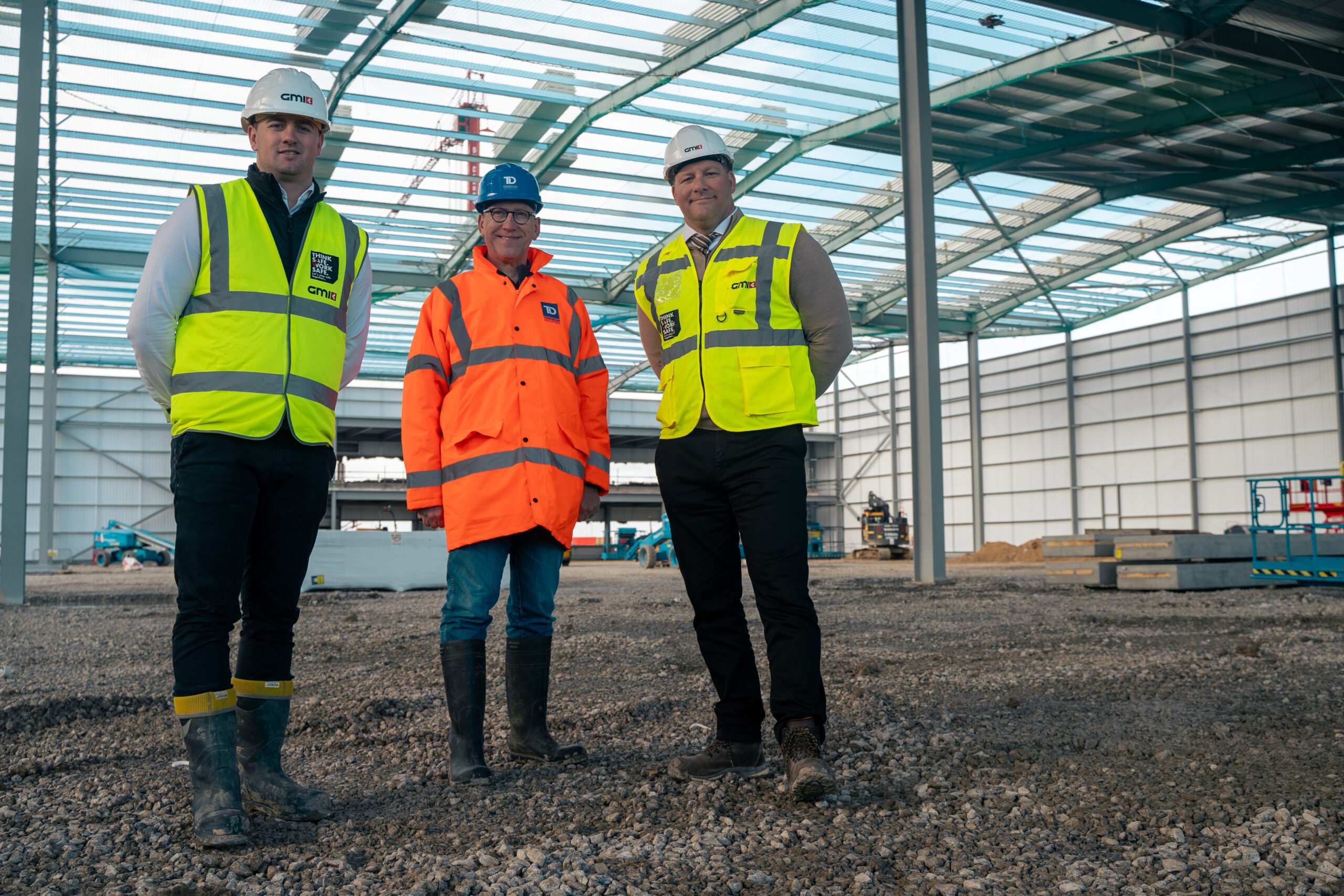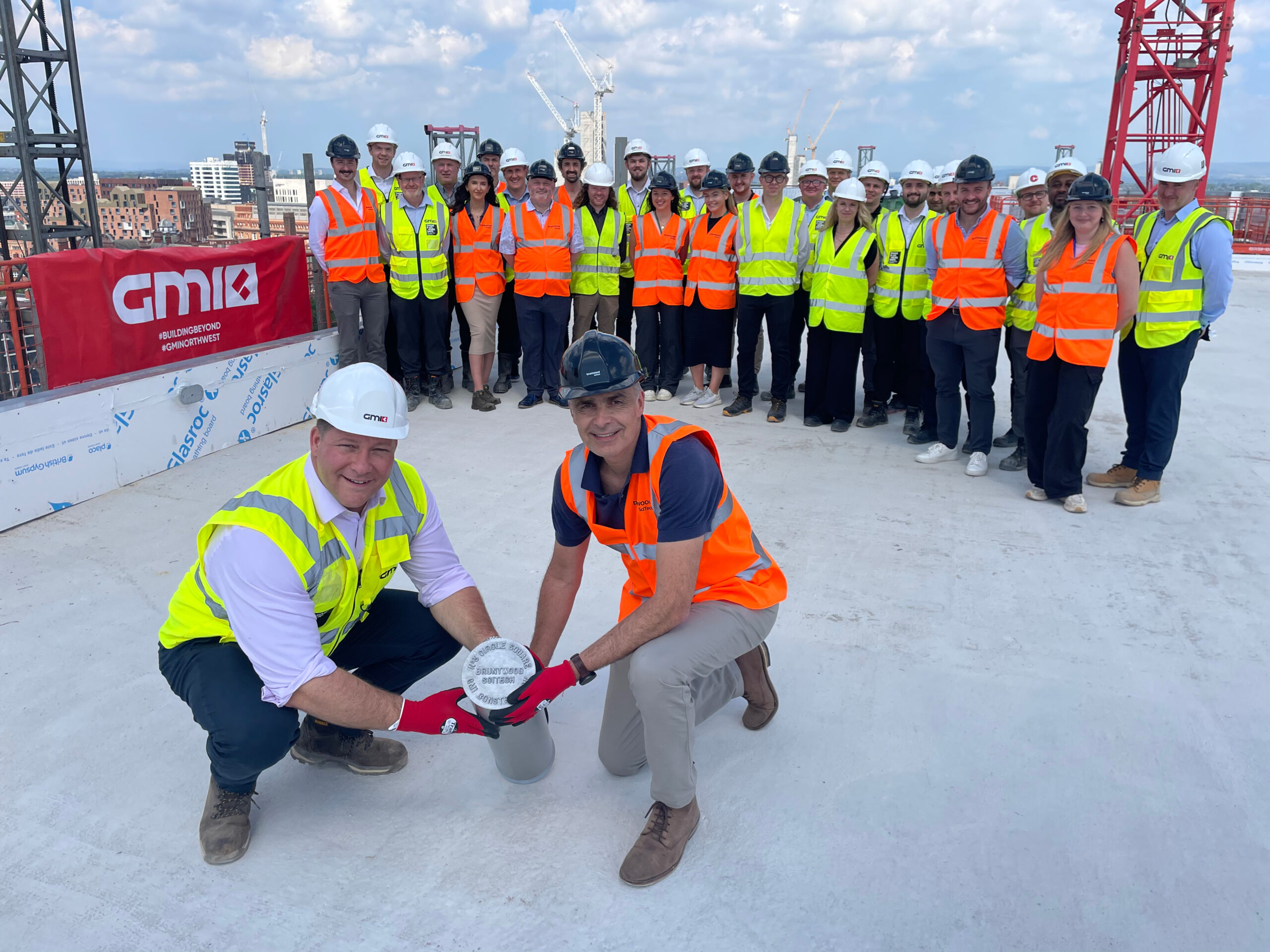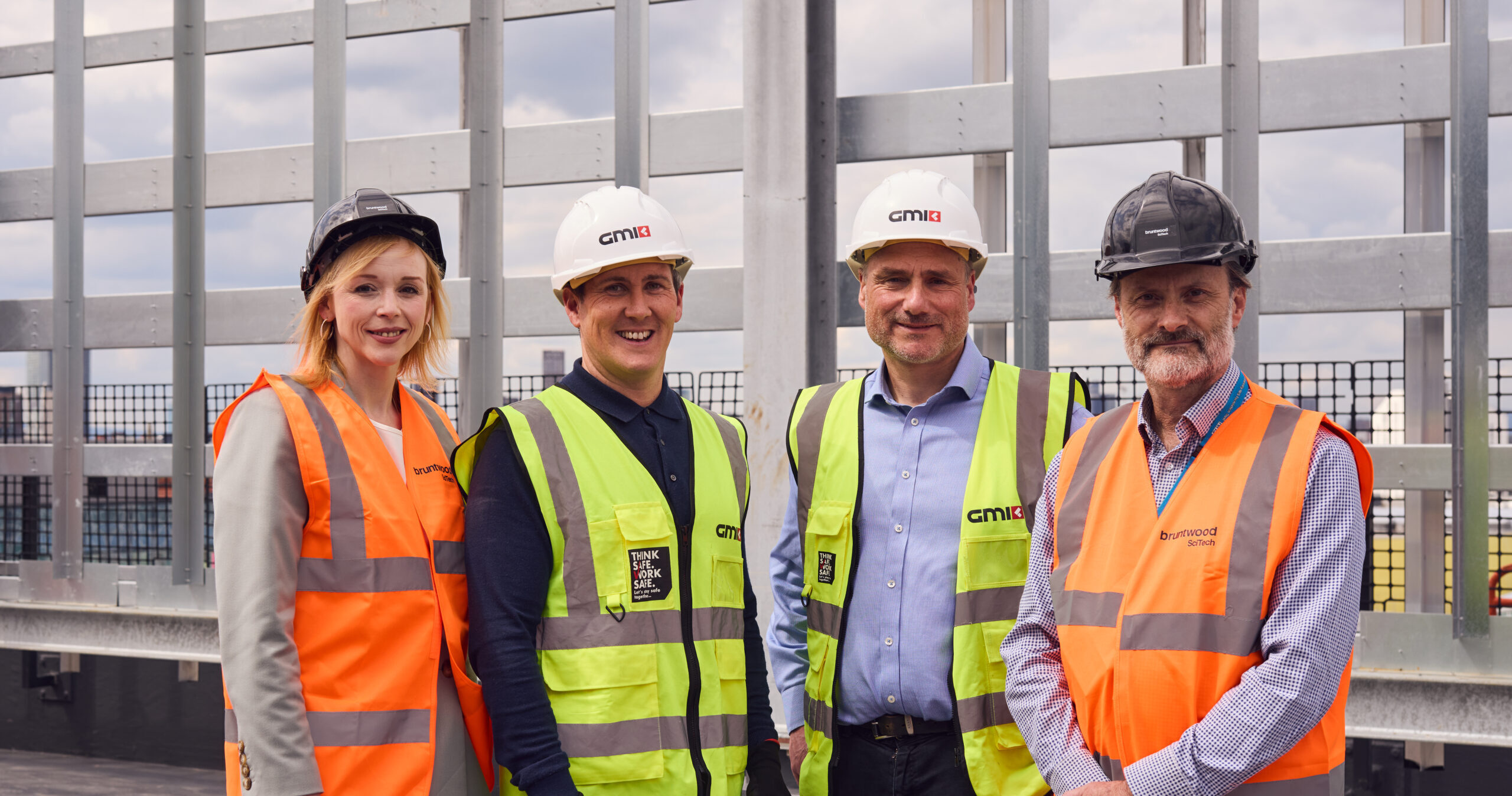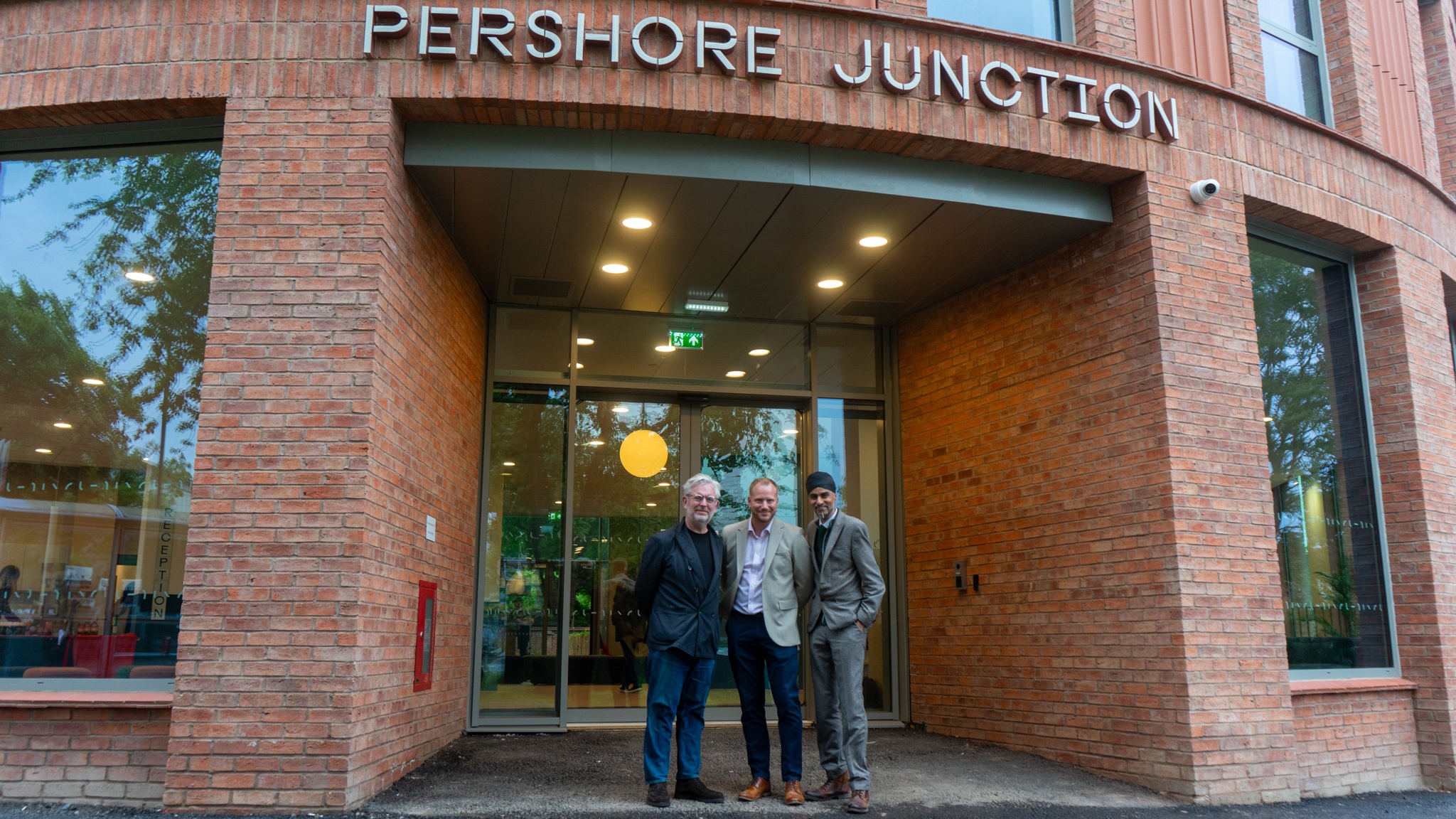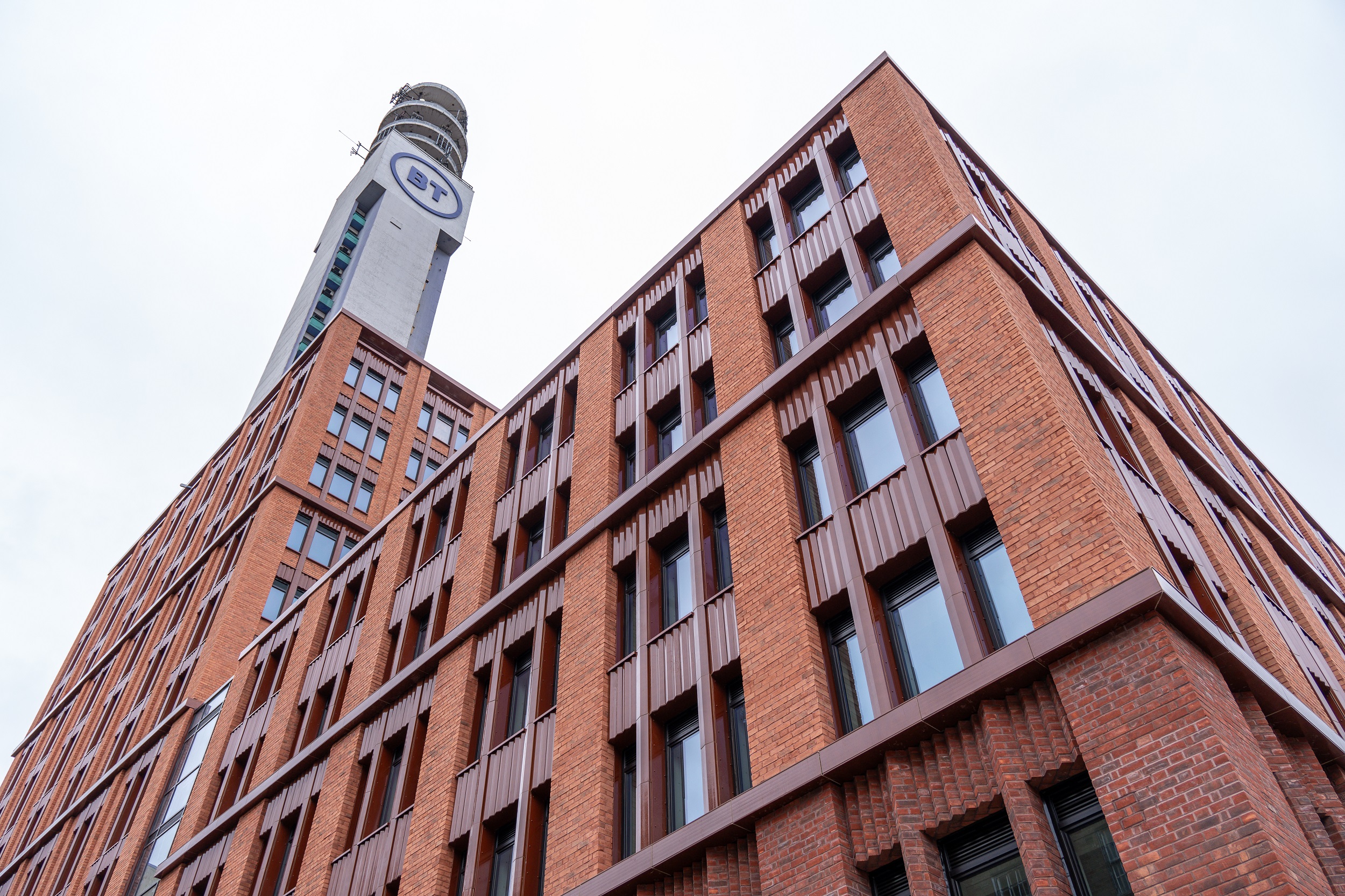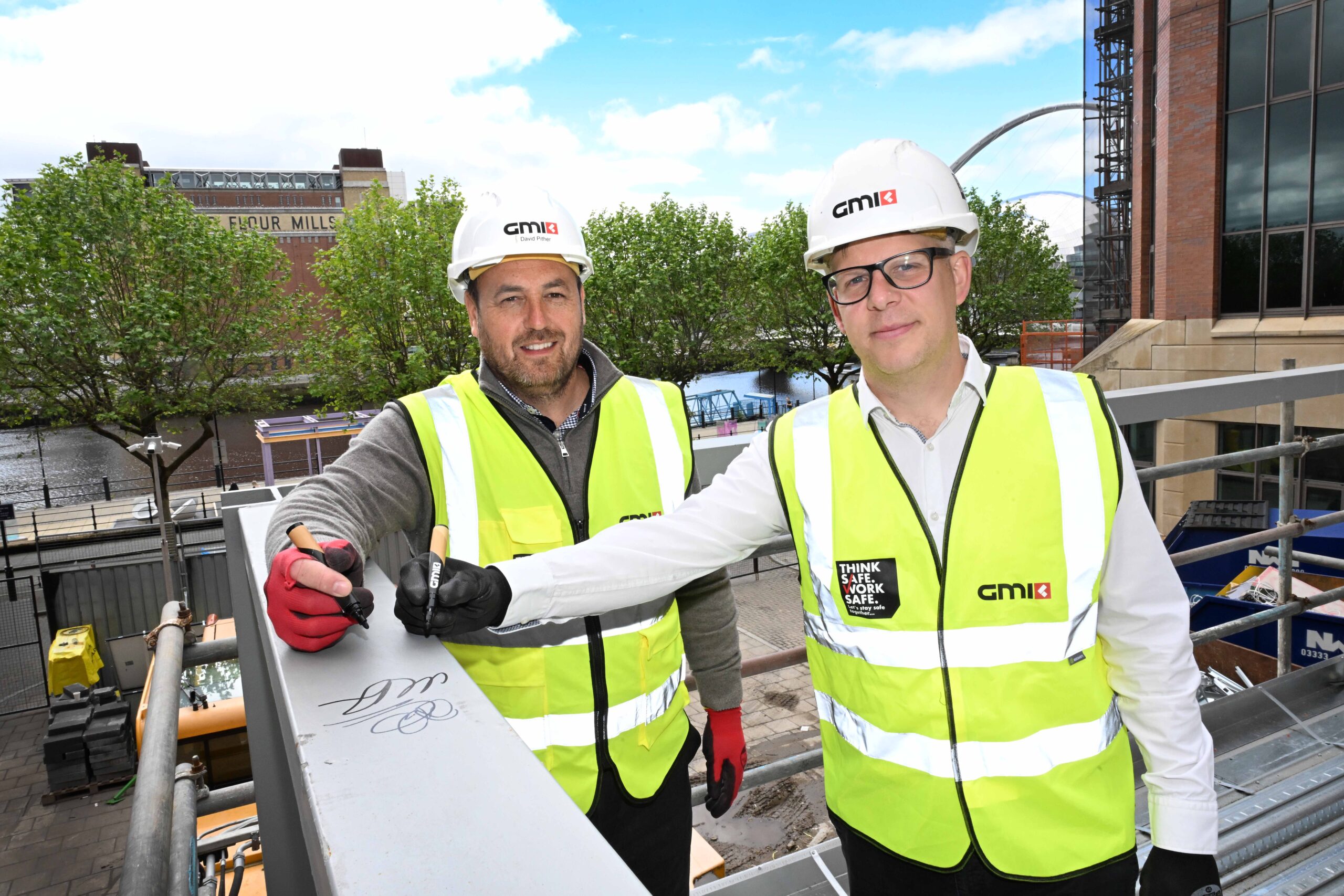In different circumstances, the new trains that are destined for London Underground’s Piccadilly line could well have been built in Vienna.
Instead, they are to be assembled on the outskirts of Goole in East Yorkshire at Siemens Mobility’s £200m state-of-the-art rail village.
It’s the first time the German company will manufacture trains in the UK rather than at its sister factory in the Austrian capital. As a result, Goole – the UK’s furthest inland port – is already feeling the economic benefits generated by Freeport status, alongside the government’s wider levelling up initiatives.
Yorkshire-headquartered GMI Construction Group is a perfect example of that spirit of levelling up, which is now driving fresh investment and vital infrastructure to the region, and with it jobs and long-term economic security.
GMI driving levelling up and investing in the future of East Yorkshire
The independent firm was awarded the £40m contract to build the rail manufacturing facility in early 2021. The 67 acre site, which comprises facilities for train body construction, assembly, testing and commissioning and trucking, also includes 4.5km of rail track linking it with the main line – making Goole as a centre for UK rail excellence.
This development will create up to 700 direct jobs and a further 1,700 in the wider supply chain, together with 250 roles during the construction phase. In addition, a further £10m worth of contracts were awarded to local and UK suppliers.
GMI, which operates throughout the North of England and Midlands, has also delivered a £7m component facility within the rail village, which maintains traction drives and motors for the train fleets.
In partnership with Trebor Developments, it is currently delivering a 100,000 sq. ft logistics centre that will store materials for Siemens Mobility’s train manufacturing and maintenance locations. This has created 200 skilled jobs during the construction phase.
Focus on employment, skills and local supply chain
As Lee Powell, the CEO of GMI, points out, there’s much more to construction than just building.
Referring to the latest project, he says: “Watts Group based near Bridlington is supplying the concrete, Connell’s from Halifax are undertaking the M&E work, F. O’Malley’s from Brighouse are completing the groundworks, and the steel frame was supplied by Severfield in North Yorkshire.
“We always try to tap in to the regional and local infrastructure. Not only do you receive a better service, but every development opportunity creates a ripple effect right through the supply chain – enabling you to give something back by supporting employment and skills development.
It’s a philosophy echoed by Bob Tattrie, managing partner of Trebor Developments: “Our aim is to have a long lasting and positive impact on the area – and for this particular development that means job creation and retention
“The whole rail village has put Goole on the map and is creating widespread interest in the area. In fact, we are actively looking for new sites that will allow us to bring forward more of these kinds of developments.”
During the construction of the train manufacturing plant, GMI ensured everyone involved in the project lived within a 25 mile radius of the site and estimates this injected at least £2.7m in wages into the local economy.
Siemens Mobility has said that the Goole facility, due to open in the spring, will produce 80 percent of the trains for the Piccadilly line – up from the 50 percent previously announced. They are due to enter service in 2025.
Lee is particularly proud of the four new apprenticeships created, one being Jack Sheard, from Goole, who was an apprentice Quantity Surveyor.
“At the time, my head was full of landing what was an extremely large contract. But when I saw Jack, it made me realise that it was also a life-changing opportunity for him, allowing him to achieve his desired career path right on his own doorstep.”
He is also pleased to note that a T-Level student taking design, surveying and planning has just joined GMI on the Trebor Developments’ project as part of his industrial placement.
“These are the opportunities and long-term benefits that would just not exist here otherwise,” he adds. “GMI is a Yorkshire-based business, and we are rightly proud to be involved in such high value projects in East Yorkshire, which are delivering the infrastructure, investment, and creating skilled jobs that is supporting the levelling up in this region.
“The town is undergoing a renaissance, including infrastructure improvements like the link road from the M62 to the port, while the prospect of Freeport status is already attracting new businesses and stimulating investment in Goole’s undeveloped sites, which provide opportunities for companies to establish operations and contribute to the local economy.
Maximisation of client partnerships to strengthen the East Yorkshire economy and communities
GMI’s first venture in East Yorkshire was on the neighbouring Goole 36 Enterprise Zone when, in 2020, it built a 232,170 sq. ft warehouse pre-let to Croda Europe Ltd on behalf of Tritax Symmetry.
Croda, which creates, makes and sells speciality chemicals, has invested £7million in the facility, which forms its worldwide distribution hub for products made at its three northern UK manufacturing sites and for the European delivery of products made across its global network. It also houses Croda’s customer service and supply chain teams, together with a training centre.
The development signalled the start of a strong partnership with Tritax Symmetry, with GMI going on to complete developments on behalf of the logistics developer across the North of England.
It also gave Siemens Mobility an opportunity to witness the quality of the company’s work at close quarters. Shortly afterwards, GMI was appointed principal contractor for its rail manufacturing plant, which also signalled the start of a long-term partnership – with Siemens selecting GMI due to its commitment to local suppliers, an emphasis on promoting employment skills and education, and its outstanding record of project delivery.
Lee adds: “The Siemens Mobility Rail Village is a prime example of creating a centre of excellence, which will, in turn, attract additional further investment and supply chain opportunities. Meanwhile, Croda Europe is an international company, which has already highlighted its commitment to this region and in doing so is creating highly skilled jobs.
“As a construction company we are dedicated to being part of that process which delivers such opportunities, and in turn redress those historic imbalances that have acted as a brake to economic growth.
“However, we can’t always wait for the government to set the agenda and it is down to businesses and the supply chain to collaborate and create added value – as are witnessing here in East Yorkshire.
“It’s extremely important that whoever is in power adopts a is pro-business approach. We need ministers who understand the business landscape and can see the opportunities that are available to drive the economy forward.
“It’s important not only to create but sustain businesses, and by doing so you attract finance, prosperity, and employment. Once this is achieved, an area is then able to invest in its social and welfare agenda, together with employment and skills.
“Levelling up requires a joint effort. While government provides resources, businesses actively participate in creating opportunities and fostering prosperity – but this does require a business-facing government.”
